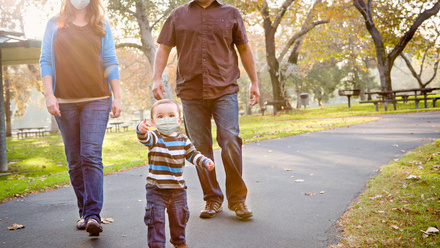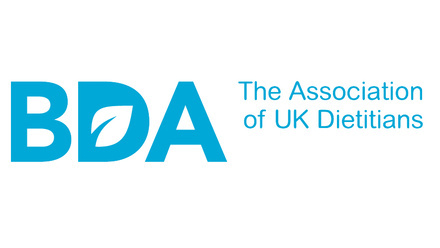The AGP Alliance demands that Matt Hancock, the Health and Social Care Secretary, personally intervenes as a matter of urgency to ensure that all healthcare professionals have access to FFP3 personal protective equipment (PPE) when working with patients with suspected or confirmed COVID-19.
The call comes just days after:
- it is revealed that a shocking 49,000 hospital staff are off work due to COVID-19, which is leading to huge frontline staffing pressures, while there are 36,000 in-patients with have the virus.
- the partial publication, on the same day, of a report from the Independent High Risk Aerosol Generating Procedures (AGPs) Panel, which failed to recognise professionals’ pleas for better PPE for frontline healthcare workers for a wider range of procedures.
Both of these things are in the context of the biggest emergency to face the NHS in its entire history.
The new variant of SARS-Cov-2 and its massively increased transmissibility have changed the world in which we live and the world in which AGP Alliance members – representing many thousands of healthcare professionals – work. The only thing that does not seem to have changed is Government policy on PPE. This is unacceptable.
People not procedures
The time has now come for Governments across the UK to update their PPE policy to maximise the safety and welfare of healthcare professionals.
Given the crisis we are in, Government should follow common sense advice and evidence from professional bodies and associations, rather than base policy on the incomplete and poor-quality evidence available about the infectious risks of everyday procedures undertaken by healthcare professionals.
With so many of those professionals off work sick and far too many of them having died, policy should be designed to adequately protect healthcare workers and their patients. Current policy is clearly not doing so.
The UK Government tells us to assume that we have COVID-19 and behave accordingly. It has taken a precautionary approach in its public messaging and in lock down. It is now time for the Government to take the same precautionary approach to the safety of healthcare staff and:
- assume that the environment in which they are working is giving them COVID-19; and
- do all it can to ensure their safety to help protect the NHS so the staff working in it can continue to save as many lives as possible and support those recovering from the virus.
If the NHS, its staff and patients are to survive this current and intensifying crisis, anything and everything possible to reduce the risk to them must be attempted. Safety must come first.
It is not just us who is saying these things.
- The AGP Alliance very much welcomes and supports the Fresh Air NHS open letter to UK political leaders calling for the UK and devolved governments to recognise the importance of airborne transmission of COVID-19, including the new variant which is known to be at least 50% more transmissible, and ensure that measures are in place to protect staff and patients.
- It also welcomes and supports the letter the BMA has sent to Trust Chief Executives, the Department of Health and Social Care (DHSC) and Public Health England (PHE) asking them to make sure all healthcare professionals have access to enhanced PPE. We salute those trusts across the UK who are taking a pragmatic approach to this issue and ensuring their staff have access to FFP3 masks in particular on red and amber wards where patients are likely to be more infectious.
Independent High Risk AGP Panel
As Government continues to fail in its response to the environmental risks in healthcare professionals’ workplaces, the Chief Medical Officer-funded Independent High Risk AGP Panel has finally published summary recommendations on high risk AGPs.
The Panel’s review was completed in December 2020 and did not take account of the hugely more infectious new variant, despite delaying its publication until January 2021, which has rendered the review out of date. It is unfortunate that there is no mention of the new variant given it has been known about for many weeks.
The AGP Alliance is shocked that:
- despite the Panel’s acknowledgement that there is no evidence to suggest healthcare workers are not at risk conducting several of the procedures considered by the Alliance to be at high risk of aerosol generation, no change is being recommended; and
- the review was not tasked to clarify whether PPE offers sufficient protection to healthcare professionals.
The Panel not being tasked to clarify whether PPE offers sufficient protection to healthcare professionals has a number of implications:
- The current focus of PPE guidance on AGPs is no longer sufficient to keep healthcare professionals safe - most staff are being infected on wards whether performing AGPs or not. In addition to aerosols from AGPs, the impact of aerosols from coughing in crowded areas, often with poor ventilation, adds to the overall risk to staff even if they are not performing an AGP themselves.
- There is a lack of transparency in who is deciding on PPE guidance. Public Health England and NHS England both state that they use the guidance of the Independent High Risk AGP Panel before changing recommendations whilst the Panel has itself stated that it was not tasked with advising on the efficacy of PPE.
- Similarly, to say that fluid resistant surgical masks (FRSM) are adequate for coughing patients makes an assessment of the efficacy of these masks. This is something that the Panel was not tasked to do. Such an assessment also directly contradicts the Health and Safety Executive’s own assessment of FRSM in RR619 Evaluating the protection afforded by surgical masks against influenza bioaerosols.
Given all this, a more cautionary approach must be taken with the lives and wellbeing of healthcare workers. In the absence of high-level evidence, significance must be given to the consensus of the national AGP Alliance, representing the concerns of multidisciplinary members. Expert consensus for best practice is a standard approach in the generation of many clinical guidelines where high-level evidence is lacking.
In this context, the AGP Alliance reaffirms its aim of having our procedures recognised as AGPs. This is important for the longer-term for any future pandemics or outbreaks of respiratory viruses. As part of that, we are now exploring options for generating further evidence that our members’ procedures are AGPs.
That longer-term ambition should in no way detract from the immediate need for our members to have access to FFP3 personal protective equipment.





